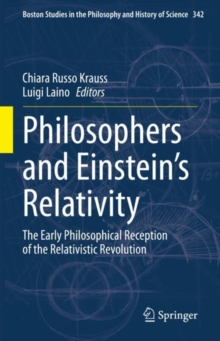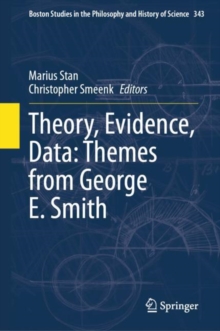
Logic and Time : An Essay on Husserl's Theory of Meaning Paperback / softback
by K. Michalski
Part of the Boston Studies in the Philosophy and History of Science series
Paperback / softback
Description
The subject of this study is Husserl's theory of meaning as it appears in his writings from the Logical Investigations to the Crisis of the European Sciences.
The first chapter focuses on HusserI's critique of psychologism and the theory of meaning that stems from it.
The second chapter takes its departure from the question of HusserI's attitude towards the Cartesian tradition, then presents the transcendental (noematic) theory of meaning represented by The Idea of Phenome nology, Ideas, and Cartesian Meditations.
The third chapter deals with Husserl's interpretation of time consciousness against the background of the development of the problem of time in modem philosophy.
Husserl often changed his views regarding the question of meaning.
I have tried to understand the reasons for these changes.
To do this, I have occasionally disturbed the chronological order of his arguments in favour of a consideration of their logical development and coher ence.
Throughout this study, but especially in the digression on consciousness and speech and the Postscript, I have also attempted to bring to the fore a tension in Husserl's thought between two interpre tive strategies: the first I call Cartesian, the other non-Cartesian or hermeneutical.
Information
-
Item not Available
- Format:Paperback / softback
- Pages:184 pages, 184 p.
- Publisher:Springer-Verlag New York Inc.
- Publication Date:30/11/2001
- Category:
- ISBN:9781402002489
Information
-
Item not Available
- Format:Paperback / softback
- Pages:184 pages, 184 p.
- Publisher:Springer-Verlag New York Inc.
- Publication Date:30/11/2001
- Category:
- ISBN:9781402002489










